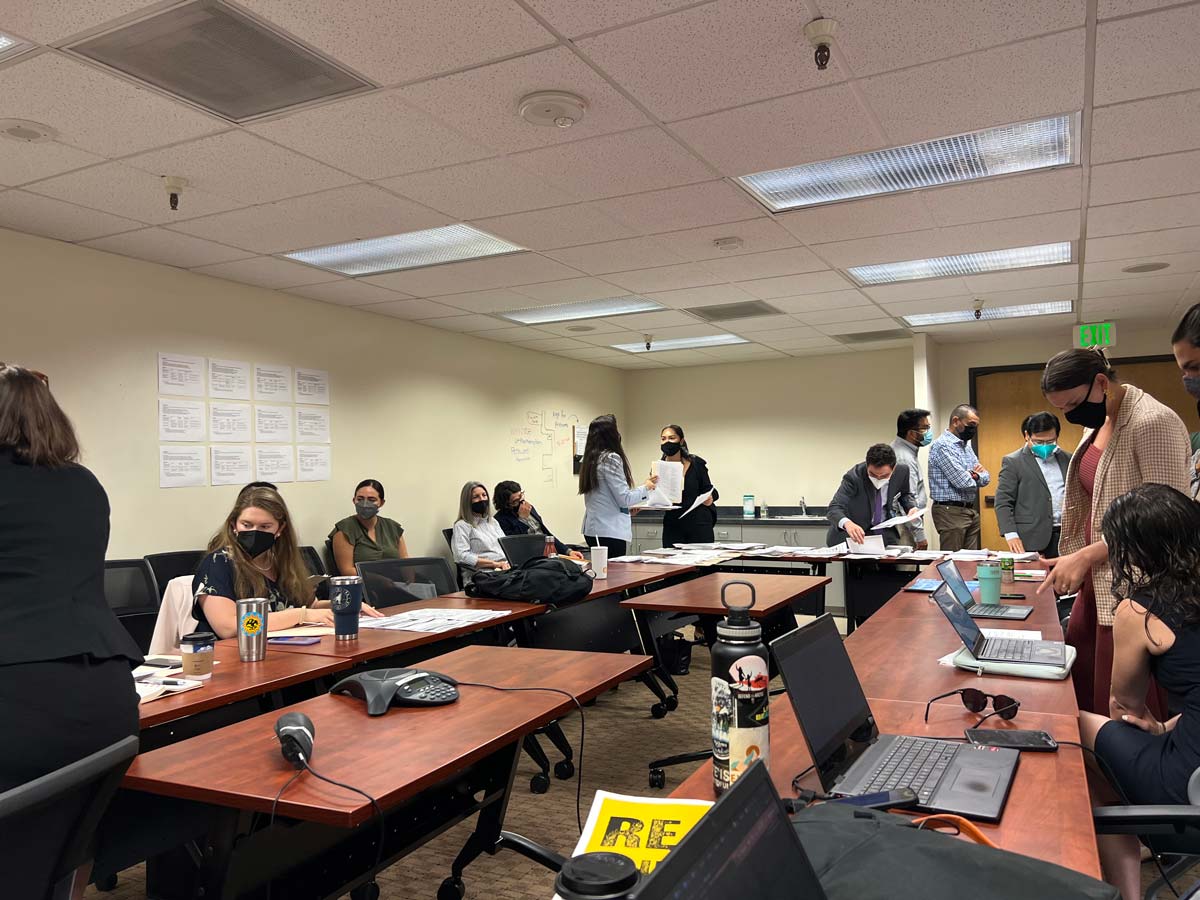Field Note: Advocating (in person) for California’s Natural Resources
A Field Note from Green California's Advocacy Day
by Kam Bezdek
This August, I had the opportunity to participate in the 2022 Green California (GreenCA) Advocacy Day. GreenCA is a network of over 120 groups with similar environmental, justice, and health agendas all working to advocate for issues concerning California’s natural resources to the legislature. The GreenCA Advocacy Day is an annual event where members of GreenCA come to the Capitol to advocate on a selection of current water and natural resource bills passing through the legislature. The goal is to amplify a united message from a diverse pool of environmentally-focused stakeholders across California.
I attended the 2021 Advocacy Day virtually, and I was so excited to have the opportunity this year to travel to Sacramento and strengthen partnerships with other organizations in person. I volunteered to be a part of the lobby day planning committee, where we were tasked with scheduling all meetings with legislative offices. While the scheduling of 65 advocates and 70 legislative offices was challenging, the hardest part was deciding which bills would be on the advocacy list for the event, which also involved the input of the entire network.
The network is split into separate working groups. For example, I am a member of the Natural Resources and Water working groups. Each working group came up with a list of bills prioritized by members of the group. The bills were explained, discussed, and then voted on by the network before being added to the final list. Despite the hurdles of coalescing a broad group on individual issues, the network compiled a list of bills that was representative of all organizations that would be lobbied for on Advocacy Day. We split into groups and were responsible for several scheduled meetings and drop-in visits. During the morning, my group visited the office of Assemblywoman Sharon Quirk-Silva (D, District 65) and did a drop-in for the office of Senator Richard Roth (D, District 31).
My group assigned specific bills for each of us to talk about and answer questions for, and for most meetings everyone had around 30 minutes to speak with a legislator or a member of their staff. In the meetings with my group, I was responsible specifically for SB 222, authored by Sen. Bill Dodd (D, District 3). SB 222 would establish the Water Rate Assistance Fund, where the State Treasury could provide affordability assistance for drinking water and wastewater services to low-income CA residents. Another bill my group presented was AB 2146, authored by Assemblywoman Rebecca Bauer-Kahan (D, District 16). This bill would prohibit the sale, possession, or use of harmful neonicotinoid pesticide except as defined for use on an agricultural commodity.

The effect of GreenCA Advocacy Day was three-fold. Firstly, the network as a whole came together as a united voice for prioritized bills that addressed statewide concerns. United together, our voice was strong and had a greater capacity to meet the legislators’ complicated questions with complex and complete answers. Secondly, the representation of bills within Advocacy Day reflected the interconnected issues within the environmental movement. Carbon sequestration and fish barrier remediation is incredibly important to California’s natural resources, but the effects of poor air quality and high temperatures due to climate change is equally impactful to residents’ health across the state. It was a powerful reminder that comprehensive environmental advocacy extends to all aspects of environmental impact, and that all organizations should have a seat at the table when the conversation is about a safer, resilient and healthy future for our state. Finally, we were able to accomplish something that was incredibly challenging in the era of Zoom calls and remote work – we gave the legislature faces to remember and stories to resonate with that brought the meaning behind advocacy to life. By participating in person, we advocated for the the bills while interweaving personal anecdotes to tell stories to the legislature that amplified their impact. Some told their stories about the poor air quality they grew up surrounded by and how it affects their lungs to this day. Others shared stories about spending time with family out in nature or the lack of resources their communities have access to. Advocates created connections that motivated legislators to support the variety of bills we brought to their attention.
Overall, I felt that the Advocacy Day was incredibly impactful and successful, and I enjoyed challenging myself to understand other complex issues within the space of environmental advocacy. Breaking away from my typical advocacy points also gave me the opportunity to refresh my own advocacy and return to my work at CalTrout with a reaffirmed sense of purpose as well as a confidence that there are always individuals working to support positive change throughout California.





